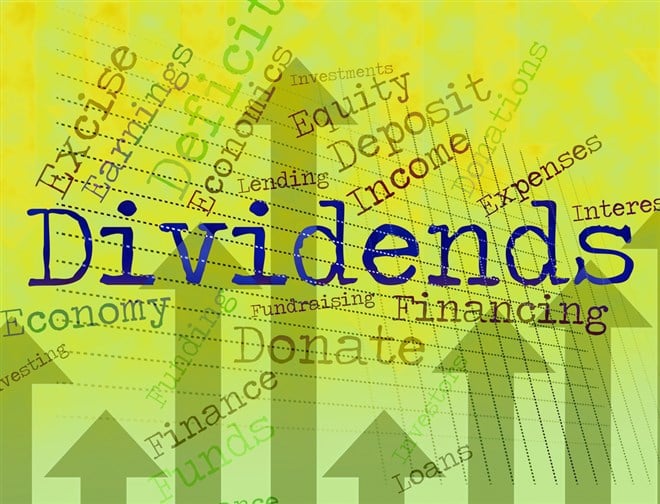
Not so fast! At least for now, Jerome Powell has dimmed investor hopes of a second half comeback for U.S. equities. The Fed Chairman’s surprisingly ‘hawkish’ Jackson Hole tone brought renewed volatility to a market that appeared to be coasting towards a summer revival. A tough reminder of the Fed’s indiscriminate influence on stock index movements, Friday’s plunge reinforced the value of the boring dividend company.
Granted, when the tide heads south in dramatic fashion such as it did last week, even the most stable of ships can get sunk. All 30 Dow Jones Industrial components finished in the red on Friday. All but five remain down for the year.
Still, low volatility dividend plays are built to show their worth over time rather than during glances at the monthly brokerage statement. First, they tend to absorb wild swings better than most, preserving portfolio value in down markets. Second, they distribute income handouts that can serve as cash life preservers keeping an account afloat.
These three low risk, dividend payers have historically helped navigate investors through turbulent waters.
What is a Good Low Volatility Health Care Stock?
Johnson & Johnson (NYSE: JNJ) is one of the least volatile blue-chip companies. This stems from the defensive nature of the healthcare giant's products. Regardless of the economic environment, Band-Aids, shampoo, pharmaceuticals, and medical devices tend to be in steady demand.
Over the past 10 calendar years, J&J shares have finished the year up on all but two occasions. The exceptions were a 1.8% dip in 2015 (that was technically offset by the dividend return) and a 7.6% decline in 2018 that followed a stellar 2017 run. Along the way, the stock was a model of consistency as it has been for decades.
The company’s steady earnings growth over the years has enabled it to raise its dividend in each of the last 61 years. In June 2022, J&J paid out a $1.13 quarterly dividend that represented a 7% bump over the previous period—and means the stock now offers a 2.8% yield. Currently on a rare four-month losing streak—its first since 2018—J&J is looking like an especially healthy long-term investment.
What Makes Coca Cola a Good Defensive Stock?
The Coca-Cola Company (NYSE: KO) matches Johnson & Johnson in the dividend department in two impressive ways. It too has increased its dividend for 61 straight years and has a 2.8% forward yield. And the similarities don’t stop there.
The classic beverage maker has historically been one of the least volatile Dow-30 stocks. It is also known to do the occasional 2-for-1 split that keeps its shares attractive to value investors.
Coke’s most prominent value investor is none other than Warren Buffet, who is frequently seen sipping a can of his favorite Cherry Coke. The company’s largest shareholder, Buffet was on Coke’s board of directors for 17 years. His vow to never sell a single Coca Cola share by itself provides a certain downside protection for the stock.
Over the years, Coke’s portfolio has grown to include a wide variety of sodas, juices, teas, and coffees. To generate the type of steady growth that it always has, the company has recognized the need to reduce the sugar content and emphasize healthier beverages amid increased awareness of prevalent medical conditions like diabetes.
A Forbes top 10 most valuable brand, Coca Cola’s worldwide recognition transcends cultures and languages. This, along with the defensive nature of its drinks, makes it a reliable revenue generator throughout the ups and downs of the economic cycle.
Is There a Low Volatility Technology Stock?
Technology companies aren’t typically associated with stability, but Cisco Systems, Inc. (NASDAQ: CSCO) is an exception. The stock has been one of the least volatile Dow names this year and offers one of the highest dividend yields at 3%.
By comparison, Apple and Microsoft have been approximately 50% more volatile in recent months and come with sub-1% yields. Of course, they arguably have much stronger growth prospects, which is why they are susceptible to growth stock selloffs.
At the other end of the spectrum is Cisco, which has proven still capable of delivering earnings growth and spreading the wealth to shareholders. In its recently completed fiscal year, the communications equipment provider posted a 3% decline in adjusted EPS. But easing supply chain constraints and improving margins in the back half of the year has management anticipating a better fiscal 2023. The company is forecasting 5% top and bottom line growth aided by a lesser reliance on hardware in favor of more hardware/software/service integrated offerings.
Cisco’s
growth potential may be underestimated by the market given its pivot from routers and switches to the faster growing data center, video, and security spaces. At 13x forward earnings, it may be a good tech name to bunker down with during what will likely be an extended Fed battle against inflation.